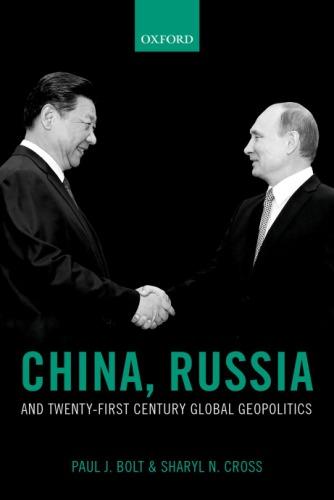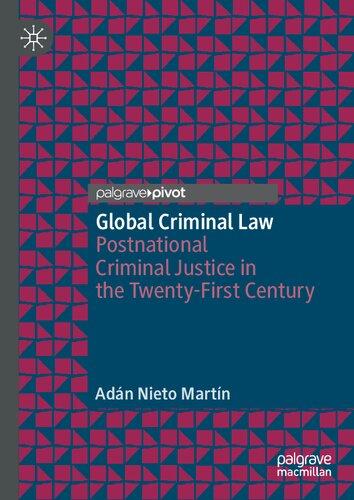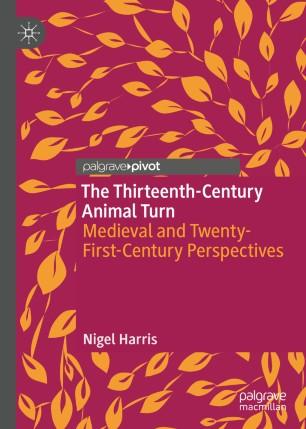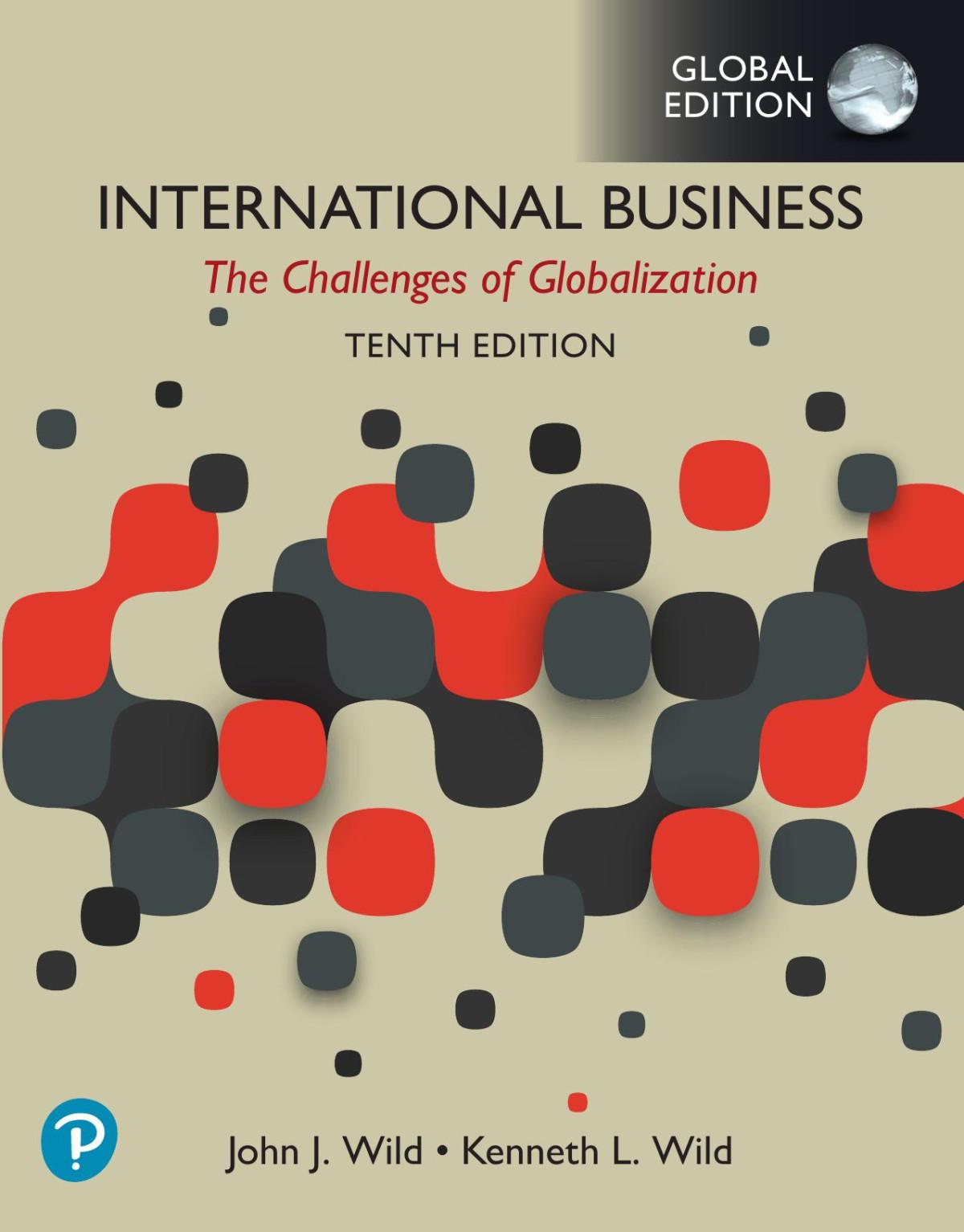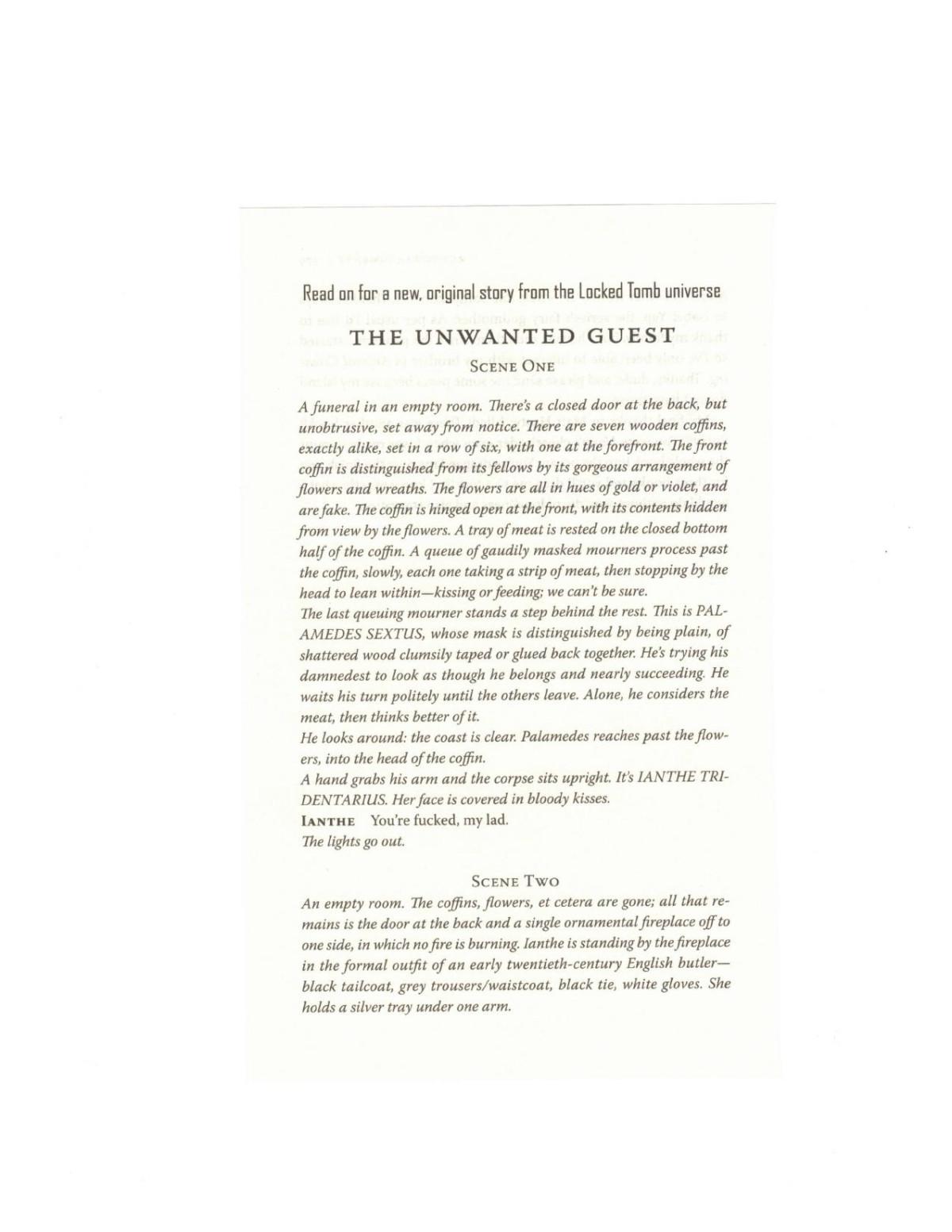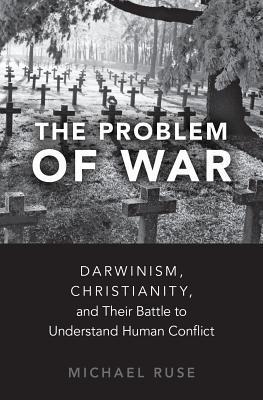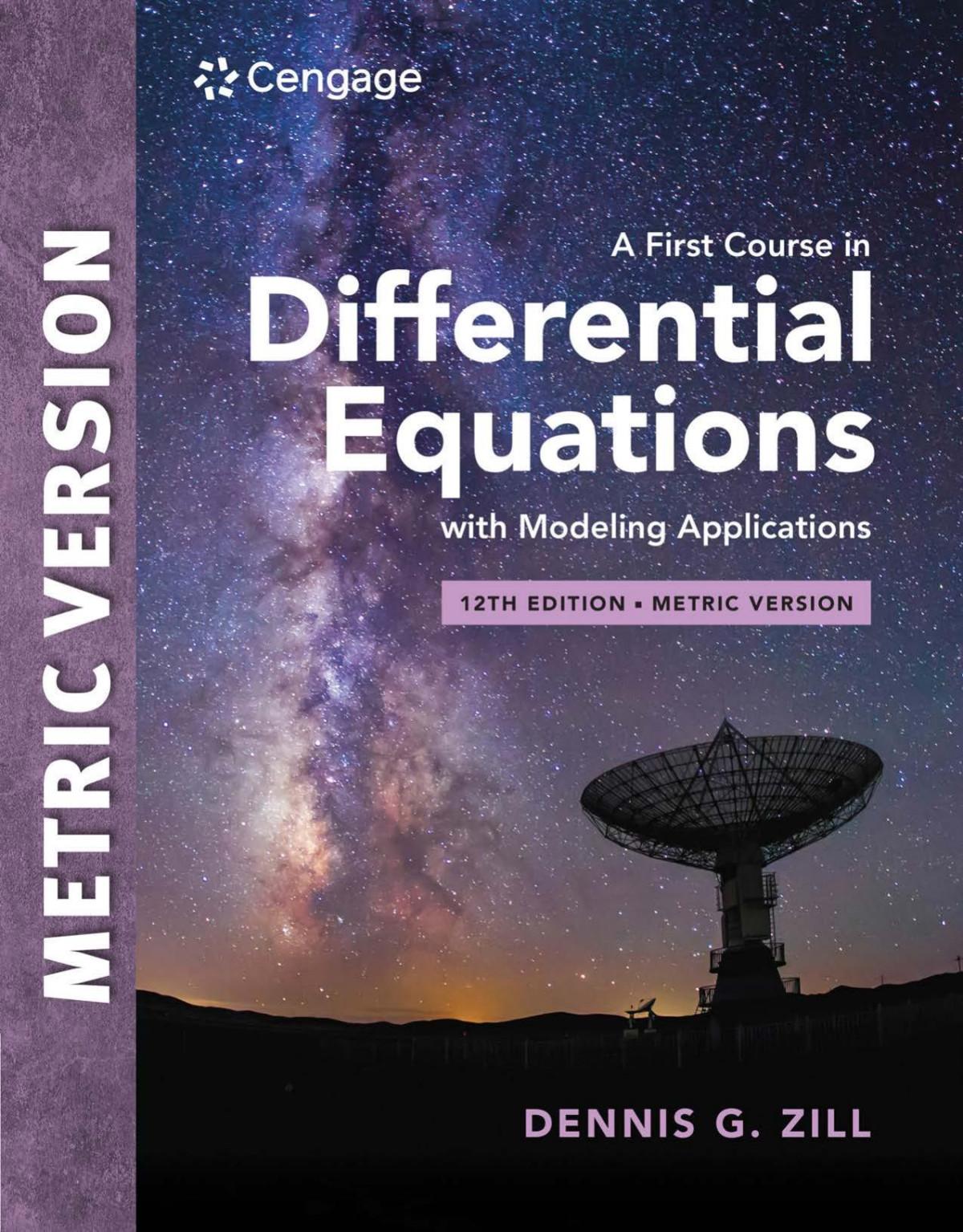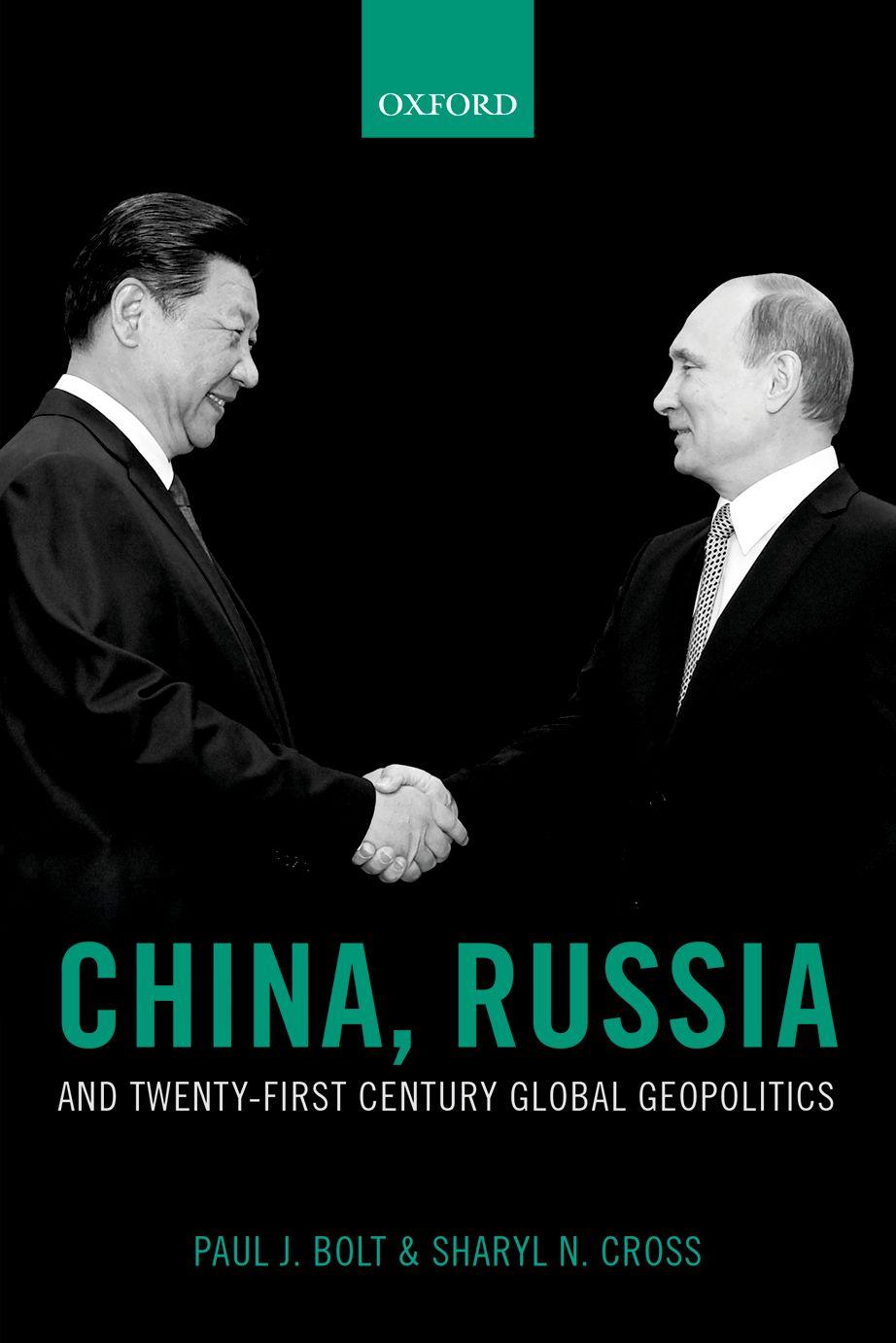https://ebookmass.com/product/china-russia-and-twenty-firstcentury-global-geopolitics-1st-edition-3rd-impressionedition-paul-j-bolt/
Instant digital products (PDF, ePub, MOBI) ready for you
Download now and discover formats that fit your needs...
Dermatopathology: Diagnosis by First Impression 3rd Edition, (Ebook PDF)
https://ebookmass.com/product/dermatopathology-diagnosis-by-firstimpression-3rd-edition-ebook-pdf/
ebookmass.com
Global Criminal Law: Postnational Criminal Justice In The Twenty-First Century 1st Edition Adán Nieto Martín
https://ebookmass.com/product/global-criminal-law-postnationalcriminal-justice-in-the-twenty-first-century-1st-edition-adan-nietomartin/
ebookmass.com
The Thirteenth-Century Animal Turn: Medieval and TwentyFirst-Century Perspectives 1st ed. Edition Nigel Harris
https://ebookmass.com/product/the-thirteenth-century-animal-turnmedieval-and-twenty-first-century-perspectives-1st-ed-edition-nigelharris/
ebookmass.com
The Doctor's Desire (Carlisle Medical Book 2) Andrew Grey
https://ebookmass.com/product/the-doctors-desire-carlisle-medicalbook-2-andrew-grey/
ebookmass.com
International Business: The Challenges of Globalization, Global Edition, 10th Edition John Wild
https://ebookmass.com/product/international-business-the-challengesof-globalization-global-edition-10th-edition-john-wild/ ebookmass.com
The Unwanted Guest Tamsyn Muir
https://ebookmass.com/product/the-unwanted-guest-tamsyn-muir/
ebookmass.com
The Problem of War: Darwinism, Christianity, and Their Battle to Understand Human Conflict Michael Ruse
https://ebookmass.com/product/the-problem-of-war-darwinismchristianity-and-their-battle-to-understand-human-conflict-michaelruse/
ebookmass.com
An Age to Work: Working-Class Childhood in Third Republic Paris Miranda Sachs
https://ebookmass.com/product/an-age-to-work-working-class-childhoodin-third-republic-paris-miranda-sachs/ ebookmass.com
Enchanted By Her (Mainely Books Club Book 2) Chelsea M. Cameron
https://ebookmass.com/product/enchanted-by-her-mainely-books-clubbook-2-chelsea-m-cameron/
ebookmass.com
A First Course in Differential Equations with Modeling Applications, 12e (Metric Edition) Dennis G. Zill
https://ebookmass.com/product/a-first-course-in-differentialequations-with-modeling-applications-12e-metric-edition-dennis-g-zill/
ebookmass.com
China,Russia,andTwenty-FirstCentury GlobalGeopolitics
China,Russia,and Twenty-FirstCentury GlobalGeopolitics
PaulJ.BoltandSharylN.Cross
GreatClarendonStreet,Oxford,OX26DP, UnitedKingdom
OxfordUniversityPressisadepartmentoftheUniversityofOxford. ItfurtherstheUniversity’sobjectiveofexcellenceinresearch,scholarship, andeducationbypublishingworldwide.Oxfordisaregisteredtrademarkof OxfordUniversityPressintheUKandincertainothercountries
©PaulJ.BoltandSharylN.Cross2018
Themoralrightsoftheauthorshavebeenasserted
FirstEditionpublishedin2018
Impression:1
Allrightsreserved.Nopartofthispublicationmaybereproduced,storedin aretrievalsystem,ortransmitted,inanyformorbyanymeans,withoutthe priorpermissioninwritingofOxfordUniversityPress,orasexpresslypermitted bylaw,bylicenceorundertermsagreedwiththeappropriatereprographics rightsorganization.Enquiriesconcerningreproductionoutsidethescopeofthe aboveshouldbesenttotheRightsDepartment,OxfordUniversityPress,atthe addressabove
Youmustnotcirculatethisworkinanyotherform andyoumustimposethissameconditiononanyacquirer
PublishedintheUnitedStatesofAmericabyOxfordUniversityPress 198MadisonAvenue,NewYork,NY10016,UnitedStatesofAmerica BritishLibraryCataloguinginPublicationData
Dataavailable
LibraryofCongressControlNumber:2017947625
ISBN978–0–19–871951–9
Printedandboundby CPIGroup(UK)Ltd,Croydon,CR04YY
LinkstothirdpartywebsitesareprovidedbyOxfordingoodfaithand forinformationonly.Oxforddisclaimsanyresponsibilityforthematerials containedinanythirdpartywebsitereferencedinthiswork.
PaulBoltdedicatesthisbooktoBettyJoandhischildren,especiallyAbby, whoseenthusiasmforthebookwasinspirational
SharylCrossdedicatesthisbookinmemoryofUSSenateMajorityLeader JoeT.RobinsonandinhonorofthelegacyoftheRobinsonfamilyofLonoke Arkansas totheirdearsonandnephew,herfather,JerryCross with gratitudeforthosesacredandenduringvaluesthathecarriesoninall spheres commitment,loyalty,integrity,faith,andlove
PrefaceandAcknowledgments
ChinaandRussia,astheworld’stwoleadingauthoritariannations,will undoubtedlybecriticalformanagingthemostpressingtraditionalandnontraditionalsecuritychallengesfacinghumanity,andcanbeexpectedtoexert significantinfluenceinshapingthefuturedevelopmentofthetwenty-first centurygeopoliticalsecurityorder.ChinaandRussiachallengeUnitedStates hegemonyandtheWesternliberalorderbyseekingamultipolarglobalpower configurationmoresuitedtotheirinterests.XiJinpingandVladimirPutin enjoyacloseassociation,andbotharestrongnationalisticleadersdetermined tocommandrespectontheworldstage.Russiastillmaintainsnuclearparity withtheUnitedStates,andChinarivalstheUnitedStatesastheworld’s leadingglobaleconomicpower.ChinaandRussiaexerciseconsiderableinfluenceaspermanentmembersoftheUnitedNationsSecurityCouncil,and shareacoincidenceofpositionsonseveralsignificantinternationalissuesin directcontradictiontothepreferencesandinterestsofWesterndemocratic nations.BeijingandMoscowunderstandthattheSino–Russianpartnership holdsthepotentialtochallengetheUnitedStatesanditsalliesonglobaland regionalissues.Atthesametime,bothcountriesplacehighpriorityon relationshipswithWesterndemocraticnations,buttheyinsistthatcollaborationbebasedon “mutualrespect” and “equality.”
ThemotivationforundertakingthisprojectontheSino–Russianrelationshipcomesfromthefactthat, firstofall,werecognizetheimportanceofthese twomajorglobalpowers,nationspossessingrichhistoricalandculturaltraditions,forfuturepeaceandsecurityinthetwenty-firstcenturyinternational community.AsAmericanscholars,webelievethattheUSacademicand policycommunitieshavebeensoconsumedoverthepastdecadewithissues intheMiddleEastandcounteringterrorismthatwehaveneglectedtodevote sufficientattentiontoassessingthestrategicsignificance,challenges,and opportunitiespresentedbytheevolvingSino–Russianrelationship.Wehope thatthisbook,combiningourrespectiveexpertiseonChinaandRussia, fills acriticalgapintheexistingliteraturebyofferingastudythatwillhold significantrelevanceforbothacademicsandpolicypractitionersinterested ingainingadeeperunderstandingofthefactorsinfluencingthedynamic developmentsintheSino–Russianstrategicpartnership.
ThisbookprovidesacomprehensiveanalysisoftheChinese–Russian bilateralrelationship,groundedinahistoricalperspective,anddiscussesthe implicationsoftheburgeoning “strategicpartnership” betweenthesetwo majorpowersforworldorderandglobalgeopolitics.Thestudyconcentrates particularattentiononevaluatingtheimportanceofRussia’s “pivot” toward ChinaandAsiainresponsetotheconsequencesofthecrisisinUkraine.The chapterscomparethenationalworldviews,priorities,andstrategicvisionsfor theleadershipsofbothChinaandRussia,examiningseveralaspectsofthe relationshipindetail.Theenergytradeisthemostimportantcomponentof economicties,althoughbothsidesdesiretobroadentradeandinvestments. Inthemilitaryrealm,RussiasellsadvancedarmstoChina,andthetwo countriesengageinregularjointexercises.Diplomatically,thesetwoEurasian powerstakesimilarapproachestoconflictsinUkraineandSyria,andalso cooperateonnon-traditionalsecurityissues,includingpreventing “colored revolutions”,cybermanagement,andterrorism.
TheanalysissuggestsmajorthemesregardingtheevolvingSino–Russian relationship.RussiaandChinahavecommonintereststhatcementtheir partnership,includingsecurity,protectingauthoritarianinstitutions,and reshapingaspectsoftheglobalorder.Theyarekeyplayersnotonlyinfluencingregionalissues,butalsointernationalnormsandinstitutions.ThecomprehensiveSino–Russianpartnershippresentsapotentialcounterbalanceto theUnitedStatesanddemocraticnationsinshapingthecontemporaryand emerginggeopoliticallandscape.Nevertheless,theWestisstillanimportant partnerforChinaandRussiaandbothcountriesseekbetterrelationswiththe UnitedStatesanditsdemocraticallies,butontermsofequitablepartnership. TheSino–Russianbilateralpartnershiphasgainedconsiderablemomentum, particularlysince2014asMoscowturnedtoBeijinginanattempttooffset tensionswiththeWestintheaftermathofRussia’sannexationofCrimeaand interventioninUkraine.However,thetwocountriesstillhavesomefrictions intheirrelationship,andnotallinterestsoverlap.Therefore,ChinaandRussia describetheirrelationshipasacomprehensive “strategicpartnership,” but theyarenot “allies.”
Intermsofourapproach,thebookcombinestheexpertiseofoneauthor concentratingresearchandteachingonChinaandChineseforeignpolicyand theotherspecializinginRussiansecurityandforeignpolicy.Wewouldnot havebeenabletoofferthedepthandscopeofanalysisprovidedinthisbook withouttheregionalexpertisethateachco-authorbroughttotheproject.In addition,weplacedthehighestpriorityonactivelyengagingindiscussions withourcolleaguesinChinaandRussiaoverthepastseveralyearstogain deeperunderstandingoftheirvaryingperspectivesandprioritieswithrespect toChineseandRussianinternationalbehavior.Wehavemadeeveryeffortto incorporateinterviewsandstatementsfromdiscussionswithleadingexperts
inChinaandRussiaandtoconsultanddocumentawiderangeoforiginal primaryChineseandRussiansourcesindevelopingourassessmentsand analysispresentedinthisbook.ThisprojectreflectsnotonlyourdailyimmersionintheAmericanandEuropeaninternationalrelationsacademicand defensecommunities,butalsooureffortstomaintainroutinecollaboration andengagementwithourcolleaguesinbothChinaandRussia,whopossess substantialsubjectareaexpertiseonpoliticsandforeignpolicyandinternationalsecurity.
ThisbookrepresentstheculminationofcollaborativeresearchontheSino–Russianrelationshipspanningthepastdecade.Weinitiatedourworkonthe Chinese–Russianpartnershipin2004whileservingtogetheronthefacultyof theUnitedStatesAirForceAcademyinColoradoSprings,andhavecontinued tocollaborateinhostingprofessionalgatheringswithourChineseand Russiancolleaguesoncontemporaryinternationalsecurityandforeignpolicy issues,travelingfrequentlytoChinaandRussiatoconductresearch,lecture, andcontributetomajorconferences,andco-authoringpublicationsfrom whichthisbookisaproduct.Althoughtheyarenotdirectlyfundingthis book,wewouldliketoacknowledgetheimportanceofpriorvaluablesupport forourresearchonChineseandRussianforeignpolicyandtheSino–Russian relationshipprovidedbytheUSAirForce’sInstituteforNationalSecurity Studies,MinervaResearchInitiative,MarshallCenterDirector’sSponsored ResearchProgram,andKennanInstituteoftheWoodrowWilsonInternationalCenterforScholars.TheauthorsthanktheKozmetskyCenterof St.Edward’sUniversityforfundingresearchforthisprojectinRussiaduring Fall2015,andhostingaconferencesessionledbytheauthorsinFebruary 2016tobringtogetherleadingexpertsfrombothChinaandRussiatodiscuss theSino–Russianrelationshipandimplicationsforglobalpoliticsandsecurity.Thesesessionsprovidedexcellentopportunitiesforholdingworking meetingswithcolleaguesfrombothnationstoexploreindepththeissues discussedinthisbook.
WewouldalsoliketoacknowledgeinstitutionsinChinaandTaiwan andRussiaforhostingandsupportingconferencegatheringsandresearch visitsoverthepasttwodecadesthatwereimportantforthisprojectwork, includingFudanUniversity,theSchoolofInternationalStudiesatPeking University,NationalChengchiUniversity,ShanghaiInternationalStudies University,ChinaForeignAffairsUniversity,ChinaInstituteofInternational Studies,InstituteofRussian,EastEuropean,andCentralAsianStudiesat theChineseAcademyofSciences,MoscowStateInstituteofInternational RelationsoftheMinistryofForeignAffairsoftheRussianFederation (MGIMO),MoscowStateUniversity,InstituteofUSAandCanadaStudiesof theRussianAcademyofSciences,St.PetersburgStateUniversity,Schoolof InternationalRelations,InstituteofWorldEconomyandInternational
Relations(IMEMO)oftheRussianAcademyofSciences,RussianInternational AffairsCouncil,andUSEmbassiesinBeijingandMoscow.WealsoacknowledgeandappreciatetheeffortsofourcolleaguesinEurope,Eurasia,and AsiaforhostingregionalconferencegatheringsthatprovidedfurtheropportunitiesforustodiscussourresearchandexchangeperspectivesonChinese andRussianforeignpolicywithcolleaguesfromChinaandRussia,including StrategyInternationalandELIAMEP(Greece),AtlanticCouncilinMontenegroandCroatia,BelgradeSecurityForum,KonradAdenauerFoundation, InternationalPoliticalScienceAssociation,NewPolicyForum/Gorbachev Foundation,ForeignAffairsAssociationGermany,SPECTRUMCenter forStrategicAnalysis(Armenia),I.I .MechnikovUniversityinOdessa, S.RajaratnamSchoolofInternationalStudiesinSingapore,andKazakhstan NationalUniversity.
China,Russia,andTwenty-FirstCenturyGlobalGeopolitics willbeofinterest foracademicexpertsonChineseandRussianforeignandsecuritypolicy,and forthoseinvolvedinbroaderstudyofinternationalrelations,geopolitics,and securitystudies.Therichoriginalprimarysourcematerialcontainedinthis bookshouldbeusefulforresearchscholars,butwewouldliketoemphasize thateveryeffortwasmadetopresentthematerialthroughoutthechaptersso astobeclear,straightforward,andeasilyaccessibleforthewidernon-expert studentandpublicaudience.Inourjudgment,thestakescouldnotbegreater fortheUnitedStatesanditsalliesinproductivelymanagingrelationshipswith thesetwocriticalglobalpowers,andwecertainlyhopethattheresearchand analysisfeaturedinthechapterswillprovideinsightonfoundationsofthe Sino–Russianevolvingpartnershipthatwillserveasavaluableresourceforthe UnitedStatesandinternationalpolicycommunities.
Aprojectsuchasthisrequirescontributionsandsupportfromnumerous colleagues,friends,andourfamilies.WewouldliketothankAlexeiVoskressenski,AlexanderLukin,ArtyomLukin,ViktorSumsky,AlexanderGabuev, VictorKremenyuk,TatyanaShakleina,PavelPalazchenko,MikhailMargelov, RaymondTruong,ScottUrbom,WangNing,ZhaoHuasheng,SuChanghe, JenniferDavis-Paguada,NinaDiaz,CamTorrens,GaoFei,SuXiaohui,Wang Dong,WuHongwei,ArthurDing,ShenDingli,WeiBai-Ku,TsaiMing-Yen,Jim Smith,andPatrickBeshaforcontributingtoourunderstandingofSino–Russian relations.CherylKearney,JoeFoster,TeresaDaniels,FranPilch,PaulCarrese, DamonColetta,DavidSacko,JohnRiley,ChristineCross,SteveBalich,and BrendaVallanceprovidedencouragementthroughouttheproject.Wethank thosewhohavediscussedideaswithusatvariousstagesofourworkonSino–Russianrelationsorwhocommentedonthemanuscript,includingRuth Melkonian-Hoover,EvanMcKinney,DoyleBaker,WangWenfeng,Suisheng Zhao,MattRojansky,IgorZevelev,JohnReppert,DespinaAfentouli,Greg Gleason,DeborahPalmieri,ElizabethProdromou,CraigNation,ScottRoenicke,
JulianLindley-French,IsabelleFacon, IgorOkunev,SergeiOznobishchev,Vadim Kozylin,NadiaArbatova,OlegDemidov,andTimurMakhmutov.Ofcourse,any errorsthatremaininthisworkaretheresponsibilityoftheauthors.
OurstudentsandseminarparticipantsattheUnitedStatesAirForceAcademy,MarshallCenter,MoscowStateInstituteofInternationalRelations (MGIMO),andSt.Edward’sUniversityhavecontributedtoourworkon ChinaandRussiabyengaginginmanydiscussionswithusandaskingexcellentquestionsaswehavereviewedtheliteratureandresearchedtheseissues. Ourworkhasnodoubtbenefitedfromtheseinteractionsandinterventions, andwewillalwaysbedeeplygratefultothosewehavehadtheprivilegeto workwithinourcoursesandseminars.
WewishtoexpressourgratitudeforthesupportprovidedbyDominicByatt andOliviaWellsatOxfordUniversityPress.Atransatlanticresidentialrelocationin2013combinedwiththeunanticipateddevelopmentsoverthecrisisin Ukraineresultedinmultipleextensionsofourdeadlinesforcompletionofthe book,andwesurelyappreciatetheabundantpatienceand flexibilityonthe partofDominic,Olivia,andtheircolleaguesatOxfordinadjustingtoour schedule.WethankDavidMowryoftheKozmetskyCenterforproviding valuableeditorialsupport.Wethankeachotherforencouragementandsustainingcommitmenttoaprojectthathasrequiredatremendousdedicationof time,concentration,andhardwork.Mostofallwewanttothankourfamilies, whoseloveandsupportthroughouttheextendedperiodsofresearchand writingreallydidmakethispossible.
SharylCross,AustinandPaulBolt, ColoradoSprings,2016
Disclaimer:Theideasexpressedinthisbookarethoseoftheauthors,andare notareflectionoftheviewsoftheinstitutionswherewearepresentlyorhave beenemployedoraffiliated.
ListofAbbreviations xv AbouttheAuthors xix
1.HistoricalFoundations,StrategicVisions,andWorldOrder1
2.EnergyandtheEconomicFoundationsoftheSino–Russian Relationship67
3.TheSino–RussianMilitary–SecurityRelationship:Emerging TrendsandChallenges108
4.Russia,China,andContemporaryInternationalConflicts: UkraineandSyria151
5.EmergingNon-traditionalSecurityChallenges:Color Revolutions,CyberandInformationSecurity,Terrorism, andViolentExtremism216
Conclusion:TheSino–RussianStrategicPartnership: ImplicationsforContemporaryWorldOrderandGeopolitics290
ListofAbbreviations
AIIBAsianInfrastructureInvestmentBank
APECAsia-PacificEconomicCooperation
APRAsia-Pacificregion
ARFASEANRegionalForum
ASATAnti-satellite
ASCMAnti-shipcruisemissile
ASEANAssociationofSoutheastAsianNations
BMDBallisticmissiledefense
BRICSBrazil,Russia,India,China,SouthAfrica
CACCybersecurityAdministrationofChina
CCPChineseCommunistParty
CICIRChinaInstituteofContemporaryInternationalRelations
CIISChinaInstituteofInternationalStudies
CISCommonwealthofIndependentStates
CMCCentralMilitaryCommission
CNOOCChinaNationalOffshoreOilCorporation
CNPCChinaNationalPetroleumCorporation
CPSUCommunistPartyoftheSovietUnion
CSACCyberSecurityAssociationofChina
CSTOCollectiveSecurityTreatyOrganization
CTCounterterrorism
CTCCounter-TerrorismCommittee
CTEDCounter-TerrorismCommitteeExecutiveDirectorate
CVECounteringviolentextremism
EAGEurasiangrouponcombatingmoneylaunderingand financing ofterrorism
EEUEurasianEconomicUnion
ESPOEastSiberian–PacificOceanpipeline
ListofAbbreviations
ETIMEastTurkestanIslamicMovement
EUEuropeanUnion
FATFFinancialActionTaskForce
FSBFederalSecurityService
GLONASSGlobalNavigationSatelliteSystem
ICANNInternetCorporationforAssignedNamesandNumbers
ICTInformationandcommunicationtechnology
IMUIslamicMovementofUzbekistan
INEWIntegratednetworkelectronicwarfare
INFIntermediateRangeNuclearForces
ISIslamicState
ISSGInternationalSyriaSupportGroup
LNGLiquidnaturalgas
MOFCOMMinistryofCommerce
NATONorthAtlanticTreatyOrganization
NATCGNationalAnti-TerrorismCoordinationGroup
NDBNewDevelopmentBank
NDRCNationalDevelopmentandReformCommission
NEANationalEnergyAdministration
NGONon-governmentalorganization
NOCNationaloilcompany
NRCNATO-RussiaCouncil
OBOROneBelt,OneRoad
OECDOrganisationforEconomicCo-operationandDevelopment
OSCEOrganizationforSecurityandCo-operationinEurope
PAPPeople’sArmedPolice
PARNASPeople’sFreedomParty
PKKKurdistanWorkers’ Party
PLAPeople’sLiberationArmy
PLAAFPeople’sLiberationArmyAirForce
PLANPeople’sLiberationArmyNavy
PRCPeople’sRepublicofChina
PYDDemocraticUnionParty
RATSRegionalAnti-TerroristStructure
RFERussianFarEast
RMBRenminbi
ListofAbbreviations
SAMSurface-to-airmissile
SCOShanghaiCooperationOrganization
SPRStrategicpetroleumreserve
SSFStrategicSupportForce
THAADTerminalHigh-AltitudeAreaDefense
TIPTurkistanIslamicParty
UNCLOSUnitedNationsConventionontheLawoftheSea
UNSCRUnitedNationsSecurityCouncilresolutions
YPGPeople’sProtectionUnits
AbouttheAuthors
PaulJ.Bolt DrPaulBoltisaProfessorofPoliticalScienceattheUnitedStatesAirForce AcademyinColoradoSprings,wherehehastaughtsince1997.DrBoltservedpreviouslyasHeadoftheDepartmentofPoliticalScienceattheUSAirForceAcademy. HereceivedhisBAfromHopeCollegeandhisMAandPhDinPoliticalSciencefromthe UniversityofIllinoisatUrbana-Champaign.HehastaughtatZhejiangUniversityand BaichengNormalCollegeinthePeople’sRepublicofChina,aswellastheUniversityof Illinois.In2009–10heservedasaFulbrightscholaratNanyangTechnologicalUniversityinSingapore.DrBoltteachescoursesinAsianPolitics,DefensePolicy,American Government,AmericanGrandStrategy,andComparativePolitics.Heistheauthor of ChinaandSoutheastAsia’sEthnicChinese:StateandDiasporainContemporaryAsia (PraegerPublishers,2000),andhaspublishedonAsiaandsecurityissuesinthe JournalofContemporaryChina, IssuesandStudies, AsianAffairs, AsianSecurity, China: AnInternationalJournal, StrategicStudiesQuarterly,andvariouseditedvolumes.Hehas alsoco-edited TheUnitedStates,RussiaandChina:ConfrontingGlobalTerrorismand SecurityChallengesinthe21stCentury (PraegerSecurityInternationalSeries,2008), China’sNuclearFuture (LynneRienner,2006),and AmericanDefensePolicy,8thedition (JohnsHopkinsUniversityPress,2005).
SharylN.Cross DrSharylCrossisDirectoroftheKozmetskyCenteratSt.Edward’s UniversityinAustinandGlobalPolicyScholarattheKennanInstituteWoodrow WilsonInternationalCenterforScholarsinWashingtonDC.DrCrosswasProfessor attheGeorgeC.MarshallEuropeanCenterforSecurityStudiesinGarmischPartenkirchenGermany(2005–13)wheresheservedasDirectorofAcademicsfor boththePrograminAdvancedSecurityStudiesandtheSeniorExecutiveSeminar. PriortotheMarshallCenter,DrCrosshadbeenappointedDistinguishedProfessorof PoliticalScienceattheUnitedStatesAirForceAcademyteachingcoursesonRussian foreignpolicy,US–Russianrelations,andglobalsecurity.ShewasaresidentSenior FulbrightScholarinMoscowin1999,servingonthefacultyoftheMoscowState InstituteofInternationalRelationsoftheMinistryofForeignAffairsoftheRussian Federation(MGIMO)andasvisitingresearchscholarattheInstituteofUSAand CanadaStudiesintheRussianAcademyofSciences.SheearnedaPhDinPolitical SciencefromtheUniversityofCalifornia,LosAngeles,andwasaresidentfellowship scholarandconsultantattheRANDCorporation,completingprogramsinRussianarea andpolicystudies.DrCrosshaspublishedextensivelyonRussianforeignandsecurity policyin CommunistandPost-CommunistStudies, JournalofSlavicMilitaryStudies,Asian Security, JournalofStrategicSecurity, JournalofSoutheastEuropeanandBlackSeaStudies,
NationalitiesPapers, USA:Economics,Politics,Ideology (RussianAcademyofSciences),and inseveralotherjournalsandeditedvolumes.Herbooksinclude ShapingSouthEast Europe’sSecurityCommunity:Trust,Partnership,andIntegration (PalgraveMacmillan,New SecurityChallengesSeries,2013), TheUnitedStates,Russia,andChina:Confronting GlobalTerrorismandSecurityChallengesinthe21stCentury (PraegerSecurityInternational Series,2008), GlobalSecurityBeyondtheMillennium:AmericanandRussianPerspectives (Macmillan,1999),and TheNewChapterinUnitedStates-RussianRelations:Opportunities andChallenges (Praeger,1994).
HistoricalFoundations,StrategicVisions, andWorldOrder
Theyear2016markedthetwentiethanniversaryofthestrategicpartnership betweenChinaandRussia,andthe fifteenthanniversaryoftheTreatyof Good-Neighborliness,Friendship,andCooperation.Overthepasttwodecades,politicalrelationsbetweenChinaandRussiahavebecomeincreasingly dynamicandclose,withcommonviewsonmostmajorworldissues,frequent summits,significantRussianarmssalestoChina,andjointmilitaryexercises. China’sleaderXiJinpingmadehis firstforeignvisittoMoscowin2013,and heandPresidentPutinhaveestablishedaclosepersonalbond.1 However,the eventsof2014catalyzedevendeeperrelationsbetweenthesetwoEurasian giants.WesternattemptstoinfluencetheMaidanRevolutioninUkraine,the RussianannexationofCrimeaandinterventionineasternUkraine,followed byWesternsanctionsagainstRussiaandthedeploymentofNATOmilitary forcesfurthereast,brokewhatwasleftofthetrustbetweenRussiaandthe West.Asaresult,Russiapivotedmoresharplytotheeast,andespecially towardChina.AlthoughChinadidnotendorseRussia’sactionsinUkraine, itbelievedthatRussiahadbeenpushedintoacornerasaresultofWestern instigationoftheuprisingthatledtotheousterofthegovernmentinKievin 2014.Atthesametime,relationsbetweentheUnitedStatesandChinawere deteriorating,duelargelytointensifiedChineseeffortstoadvanceitsmaritimeclaimsintheSouthChinaSeaandEastChinaSeaattheexpenseof Americanallies,raisingfearsintheUnitedStatesthatChinawouldinterfere withfreedomofnavigationinvitalsealinesofcommunication.
TheclosenessofRussiaandChinatoeachotherandtheirdistancefrom otherWesternpowerswasillustratedin2015byfestivitiesinMoscowinMay, andtheninBeijinginSeptember,celebratingtheanniversaryoftheendof WorldWarII.WhileXiwenttoMoscowandPutintraveledtoBeijing, PresidentObamaandotherWesternleadersheldcommemorationselsewhere. Sincetheeventsofearly2014,ChinaandRussiahavesignednewagreements onbuildinggaspipelines(althoughthepipelineshavenotbeenbuiltyet)and
increasedtheirjointmilitaryexercises,withnavaldrillstakingplaceintheSouth ChinaSeain2016.ThetwopartnershavecooperateddiplomaticallyonSyria, andRussiaandChinahaveworkedtogetheronnon-traditionalsecurityissues suchascyberspace,terrorism,andpreventing “coloredrevolutions”,unified byasharedvisionthatstableauthoritariangovernmentislegitimate.Since 2014,RussiaandChinahavealsointensifiedeffortstoenhanceeconomic cooperation,andhavebegunworkingonintegratingChina’sOneBelt,One Road(OBOR)withtheEurasianEconomicUnion(EEU).Theycharacterize theirrelationshipasacomprehensivestrategicpartnershipofcoordination.
ThisisnottosuggestthatChinaandRussiahaveovercomealldifferencesin theiroutlooksandpolicies.WhileChinahasasserteditsmaritimeinterests,it isrelativelycautiousinitsforeignpolicyinordertopreserveastableenvironmentforeconomicgrowth.Russiahasbeenmorewillingtoviolatetraditional rules,norms,andexpectationsanddefyUSpreferencesifitbelievesitisinits intereststodoso.TherearesignificantstructuraldifferencesintheRussian andChineseeconomiesthatimpedecloserbilateraleconomiccooperation, andthesebarrierswillcontinuetopresentsignificantchallengesevenwith strongpoliticalwilltoovercomethem.Chinadoesnotwanttobecomeoverly entangledinRussia’sconflictinUkraine,andMoscowstrivestomaintain goodrelationswithHanoiinspiteofVietnam’sdisputewithChinainthe SouthChinaSea.
Thus,ChinaandRussiahaveausefulpartnershipwithstrongmomentum thatshapesinternationalpolitics.ChinaandRussiaseektoalteraspectsofthe liberalworldorderwhichtheyhadnohandincreating,althoughChinain particularhasbenefitedfromthisorder.Whatremainsanopenquestionis howthepowerdisparitybetweenthetwocountrieswillplayoutoverthe comingyears.ChinatreatsRussiawithrespect.Nevertheless,thefactremains thatChinaisoutpacingRussiaineconomicgrowthandmilitaryspending. LeadingRussianexpertsonChina,AlexanderGabuevandAlexeiVoskressenski,notethatRussianshaverecentlysuggestedthereferenceto “elder sister” forRussiaintheSino–Russianrelationship,orawomanofseniorstatus, thatmorepowerfulChinashouldrespectorevenprotect.2 WhileRussian elitesaredeterminedtoestablishRussiaasanindependentpillarinthe worldandinsistthatRussiawillnotserveasajuniorpartnertoanycountry, thelong-termpowerdifferentialisafactthatRussiamustdealwith.
TheacademicandpolicydebatesonSino–Russiantiescovertwomajorissues. The firstisthequestionofhowcloseandstabletherelationshipofthesetwo countriesreallyis.Inotherwords,whatisthebestwaytocharacterizethis relationship?Answersintheliteraturehaverangedfromcynicalcooperation onalimitedrangeofissuestoanalliancethatthreatenstheWest.Thesecond (andrelated)debateishowtheSino–Russianrelationshipwillshapetheliberal internationalorder.HowdoBeijingandMoscowviewthecurrentorder,and
howmighttheirpartnershipalteraspectsofthisorder?Withinthesebroader questionsliemorespecificissueareaswhereChinaandRussiabothcooperate andcompete.Theseincludeeconomicandenergyties,securityandarmssales, regionalconflicts,andapproachestowardnon-traditionalsecurityconcerns.
Inaddressingthesetopics,thisbookhasfourmajorthemes.First,Russiaand Chinahavecommonintereststhatcementtheirpartnership.Onesuchinterestismaintenanceofexternalandinternalsecurity.Asecurejointborderis vitalforbothstates,aswellascooperationagainstterrorismandinternal threats.WhileChinaandRussiahavedifferentformsofgovernment,they shareagoaloflegitimizingandprotectingauthoritarianinstitutions.Moreover,bothcountriesarestrengtheningstateinstitutionsattheexpenseofcivil societyandprivatebusiness.Anadditionalcommoninterestisdissatisfaction withelementsoftheexistingliberalworldorder.WhiletheWestholdsrules forresolvingdisputestobecentraltotheorder,ChinaandRussiaperceive injusticesthataredifficulttoremedyundertheexistingrules.
AsecondthemeisthatRussiaandChinaarekeyplayersinshapingthe internationalorder.WesterntriumphalismaftertheendoftheColdWaris past,andRussiaandChinawillbeinfluentialinallmajorworldissues, affectingthebalanceofpower,normsofbothdomesticandinternational conduct,andglobalinstitutions.RussiaandChinacanbeacounterbalanceto theUnitedStatesandtheWest,butthecooperationofthesetwogiantswill alsobecriticalinsuccessfullymanagingahostoftransnationalsecurity challengesintheglobalenvironment.
AthirdthemeisthattheWestisstillanimportantpartnerforChinaand Russiaintheeconomicandpoliticalrealms.RussiaandChinaarenotdirectly opposingtheWestasintheColdWar,anddesireacooperativerelationship withtheWest,butoneinwhichtheWestmakesgreateraccommodationof theirinterests.
The finalthemeisthatRussiaandChinaarepartnersbutnotallies.While thepaceofcooperationbetweenthetwostatesisquickening,therearelimits totheamountofsupporteachwillgivetheother,aswellaselementsof distrustthat,althoughperhapsnotoftenpubliclydiscussed,arerootedin historyandthefearofongoingchangesinrelativepower.
WorldOrder
SincetheendoftheColdWarandtheunexpectedcollapseofthebipolar worldorder,scholarsandpolicymakershaveattemptedtounderstandthe contoursofanemergingorder.Asearlyas1989,FrancisFukuyama,anAmericanpoliticalscientistnowatStanfordUniversity,predictedtheendofhistory, aworldwhereliberaldemocracyreignedsupremewithoutseriousideological
challengers.In1991,USPresidentGeorgeH.W.Bushproclaimeda “new worldorderwherediversenationsaredrawntogetherincommoncauseto achievetheuniversalaspirationsofmankind:peaceandsecurity,freedom andtheruleoflaw.” However,Fukuyama’sonetimementorSamuelHuntingtonforesawaverydifferentstructure,aclashofcivilizationswherefrequent warswouldbefoughtalongcivilizationalfaultlines.3 Bythemid-1990s,many observersnotedaunipolarworldstructuredominatedbytheUnitedStates, althoughdebaterevolvedaroundhowlongunipolaritywouldlast.4 For instance,FrenchForeignMinisterHubertVedrinedescribedtheUnitedStates asa “hyperpower,” meaning “acountrythatisdominantorpredominant inallcategories,” andthusastatewhoseunilateraltendencies,inhisview, neededtobebalanced.5
Thismattersbecausemajorpowersseektoadvancetheirviewofworld order.HenryKissingerstatesthattheAmericanviewoforderseesdemocratic principlesasuniversal,necessarytolegitimizegovernments.Seeingitselfas uniqueandhavingamission,theAmericanviewisrootedinWilsonianism. Kissingerclaims, “WheneverAmericahasbeentestedbycrisisorconflict ... it hasreturnedinonewayoranothertoWoodrowWilson’svisionofaworld orderthatsecurespeacethroughdemocracy,opendiplomacy,andthecultivationofsharedrulesandstandards.” Unfortunately,accordingtoKissinger, thisWilsonianimpulsetakesneitherhistorynorgeopoliticsintoaccount.6 LiberalWilsonianvaluescontinuetoaffecttheAmericanworldview.As describedbythe 2015NationalSecurityStrategy,theAmericanvisionconsists of “arules-basedinternationalorderthatworksbestthroughempowered citizens,responsiblestates,andeffectiveregionalandinternationalorganizations.”7 Itself-consciouslystrivestopromoteAmericanvaluesabroad,definingdemocracy,humanrights,andtheequalityofminoritygroupsaroundthe worldasfundamentalAmericaninterests.8 Whilecriticspointtonumerous instancesoftheUSapplyingrulestoothersbutnotitself,theWilsonian principlesthemselvesarenotuniversallyaccepted.
Todaytheunipolarmomenthaspassed:USfailuresinIraqandAfghanistan; RussianactivisminUkraine,Syria,andelsewhere;theemergenceoftheBRICS (agroupingofBrazil,Russia,India,China,SouthAfrica);thepowerofterrorist organizationssuchasalQaeda,ISIS,andtheiraffiliates;andsignificantweaknessesinWestern financialstructuresillustratedbythe2008 financialcrisis, continuinginstabilityintheEurozone,andBrexithaveallposedchallenges totheliberalworldorder.9 Kissingerstates: “Ourageisinsistently,attimes almostdesperately,inpursuitofaconceptofworldorder,” notingthatorder consistsofbothlegitimacy,orrulesthatarewidelyconsideredjust,andpower relationshipsbetweenstates.10 Hemakesitclearthat,regrettably,nuclear proliferation,cybertechnology,andthepressuresbroughtonpoliticalleaders bydigitalmediamaketheframingofaglobalordermoredifficult.
Viewsofworldorderareinevitablytiedtoone’stheoreticalperspective. Realistsseeorderastheprevailingpowerdistributionamongstates.Because theworldisanarchic, “order” alwayshasaconflictualelement.Liberals emphasizetheimportanceofinternationalinstitutionsinshapingworld order.Theyalsofocusonthedomesticcharacteristicsofstates,particularly theextenttowhichstatesembracevaluessuchasdemocracyandhuman rights.Constructivistsnotethatconceptionsoforderevolveinlinewithstate identities,conceptionsofinterest,andnorms.TheEnglishSchoolviews internationalorderas “apatternorarrangementthatsustainstheprimary goalsofasocietyofstates.Itmustinvolvelimitsonbehaviour,themanagementofconflict,andtheaccommodationofchangewithoutundermining thecommongoalsandvaluesofsociety.”11
Statestoohavedifferingviewsofworldorder.ChinaandRussiahave demonstrateddissatisfactionwithelementsofthecurrentliberalorder.Both countriespubliclycallforamultipolarworldwheretheinterestsofallmajor powersaretakenintoaccount.Asearlyas1997,thetwosidessubmitteda documenttotheUnitedNationsentitleda “Russian-ChineseJointDeclarationonaMultipolarWorldandtheEstablishmentofaNewInternational Order.”12 Bothcountriesinsistthatmajorinternationalissuesbeworkedout intheUnitedNationsSecurityCouncil,wheretheyhaveaveto.Russiaand Chinaadvocateforstrongerstatesovereignty,wherehumanrightsarenot issuesofinternationalconcern.RussiaandChinabothrejectthenotionthat democracyisnecessaryforgovernmentlegitimacy.Russiainsistsonasphere ofinfluenceintheformerSovietstates,whileChinawantstheUnitedStatesto stopinterveninginitsmaritimeterritorialdisputes.
ThewaythatChinaandRussiawillshapetheworldorder,andtheinfluence eachwillhave,isstillunfolding.ChinahasgreaterresourcesthanRussia, althoughMoscowismoreinclinedtoboldlychallengethestatusquo.This bookwillexploreSino–Russianties,withanemphasisonhowthisrelationshipwillaffectthefeaturesandrulesofworldorderintermsofbothpower distributionandwhatconstituteslegitimaterules,norms,orexpectationsof behavior.ThecurrentchapterwilllookatthelegacyofthehistoryofChinese–Russianrelations,notingmajorhistoricaleventsandtheireffectonworld order,aswellasprovidinganoverviewofhowChinaandRussiaviewthe internationalrulesofthegame.13
TheLegacyofHistoryinChinese–RussianRelations
Russia’s firstexperiencewithanAsianempirewasinvasionfromGenghis Khan’sgrandsonBatuKhanandhisgeneralSubutaifrom1223–40.The MongolforcescrushedRussianmilitaryoppositionandburnedfourteen

